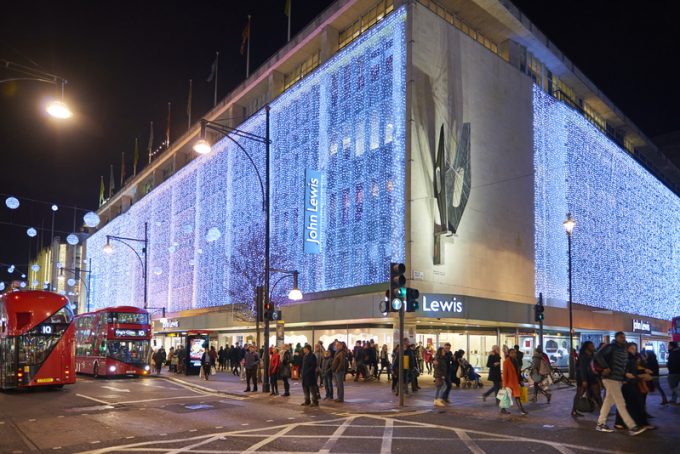Amazon: 2023 letter to shareholders
Published today, 11 April, the full letter can be downloaded here.

The operations director of department store chain John Lewis has urged retailers not to try to replicate Amazon’s business model, but find their own space.
“The world of retail is changing,” Dino Rocos told delegates at The Delivery Conference in London this week. “And there is no clear line of sight where this journey is going to take us.
“Who believes that you can compete with a pure player which seemingly doesn’t need to make a profit?
“We shouldn’t be fooled into playing by the same rules as others. If you chase a delivery model that is replicated, you will cease to trade.”
People, he said, were increasingly spending less on ‘stuff’ and more on experiences, such as music streaming, and renting versus home ownership.
“We have never lived in a more disruptive time. The steady state now is change.”
John Lewis was founded in 1865, its task to understand the customer as an individual. This evolved into a mass market. The next stage, said Mr Rocos, was mass personalisation – edited for a particular customer. For that, customer data is critical.
“It is vitally important that as you start to reposition your business, you carve out a space that allows you to truly differentiate, and customer data is hugely important.
“When you have access to everything, you need inspiration and convenience. And something you can’t find elsewhere by clicking a button.”
Online spend accounts for some 40% of John Lewis’ annual revenues, and 55% of that is click and collect. Out of that, 65% is collected from food shops.
“This links into changing behaviour. Not a once-a-week shop, but small, regular shopping.”
He added that it was not just about fulfilment – John Lewis now offers 47 different services, including assembly and installation of goods.
“We are offering a raft of new services, away from the pure player on the internet. We are looking at the lifetime value of the customer – not just for one transaction but through their lives. The aim is to build relationships, not just make transactions.”
And John Lewis is investing £540m in its supply chain.
“You can’t turn a blind eye to the reality of online, and you need investment to deliver that fundamental shift. The supply chain sits at the very centre. Fulfilment is much more important than it ever was.”
Other retailers also noted that customer service, which in large part means delivery in ecommerce terms, was crucial, as was getting the right suppliers.
“We can’t compete with the pure play guys,” said Martin Goldstein, head of purchasing at retailer River Island. “The key is looking at customer service and how good we are at delivering goods and solving problems.” He added that good suppliers were very important.
Chris Haighton, head of logistics at ShopDirect, said customers have told him “loud and clear” that they want free delivery.
“We need to set our carriers up for success at the checkout page.”
He added: “We want to put our arms around the delivery process, whether that is us or a third party. It must be well-communicated, in our tone of voice.”
Chairman of Debenham’s, Sir Ian Cheshire, said “a few things done well in e-commerce will make the difference.
“Volumes are simultaneous and dynamic…The advantage of a retailer is not pure scale – that can be a disadvantage. You need flexibility and speed to market. Sheer scale is less useful than ability to change.”
Patrick Wall, founder of data company MetaPak, put a name to retailers’ fears.
“There is the gorilla – the 10-tonne monster. Powerful, threatening, Amazon.
“Amazon talks about technology but it’s actually gaining advantage through scale. It has delivery stock in conurbations for an immediate delivery experience. There is a structural advantage through scale. Amazon together with Alibaba and ebay have 30% of the market.
“As market pressure builds, it’s the middle ground that suffers.”
Comment on this article